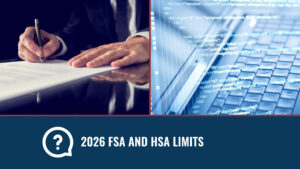A: The order, which will be enforceable as of Sunday April 19, 2020 at 8 p.m., addresses worker safety measures for businesses authorized to maintain in-person operations, other than health care providers, pursuant to the Order the Governor issued on March 19, 2020, and subsequently amended, shall implement protocols, as applicable, to protect the public from the Spread of COVID-19. There are detailed protocols included in the order which address:
- Social distancing in the workplace
- Mitigation
- Cleaning Protocols
Employers should read the complete order at: https://www.governor.pa.gov/wp-content/uploads/2020/04/20200415-SOH-worker-safety-order.pdf
Q. An employee has a confirmed case of COVID-19, am I permitted to disclose to the workforce the name of the employee?
A: No. An employer may tell the workforce that a confirmed case exists but cannot disclose the name of the employee. The ADA does not permit such a broad disclosure of the medical condition of a specific employee. More importantly, this broad disclosure is not recommended by the CDC. The CDC specifically advises employers to maintain confidentiality of people with confirmed COVID-19. This is addressed in the Transcript of EEOC Webinar on COVID-19 question 8.
Q. Is there anyone in my workplace who should be provided with the individual’s name if there is a confirmed case of COVID-19 in our workforce?
A: Disclosing the identity to anyone will depend on your workplace and reason why a specific official may need this information. Employers should make every effort to limit the number of people to whom the name of the employee is disclosed. This is addressed in the Transcript of EEOC Webinar on COVID-19 question 5.
Q. During a pandemic, may an ADA-covered employer take its employees’ temperatures to determine whether they have a fever?
A: Yes. If pandemic influenza symptoms become more severe than the seasonal flu or the H1N1 virus in the spring/summer of 2009, or if pandemic influenza becomes widespread in the community as assessed by state or local health authorities or the CDC, then employers may measure employees’ body temperature. You can find this answer in Pandemic Preparedness in the Workplace and the Americans with Disabilities Act question B7. Employers will need to follow Confidentiality of Medical Information as detailed in What You should Know About COVID-19 and the ADA, the Rehabilitation Act and Other EEO Laws.
Q. May an ADA-covered employer send employees home if they display influenza-like symptoms during a pandemic?
A. Yes. The CDC states that employees who become ill with symptoms of influenza-like illness at work during a pandemic should leave the workplace. Advising such workers to go home is not a disability-related action if the illness is akin to seasonal influenza or the 2009 spring/summer H1N1 virus. Additionally, the action would be permitted under the ADA if the illness were serious enough to pose a direct threat. Based on CDC guidance, this principle may be applied COVID-19, this means an employer can send home an employee with COVID-19 or symptoms associated with it. This is addressed in Pandemic Preparedness in the Workplace and the Americans with Disability question B5.
Q. During a pandemic, may an employer require its employees to wear personal protective equipment (e.g., face masks, gloves, or gowns) designed to reduce the transmission of pandemic infection?
A. Yes. An employer may require employees to wear personal protective equipment during a pandemic. However, where an employee with a disability needs a related reasonable accommodation under the ADA (e.g., non-latex gloves, or gowns designed for individuals who use wheelchairs), the employer should provide these, absent undue hardship This is addressed in Pandemic Preparedness in the Workplace and the Americans with Disability question B12.
Employer Resources
What You should Know About COVID-19 and the ADA, the Rehabilitation Act and Other EEO Laws.
COVID-19 “Ask the EEOC Webinar” March 27, 2020
Transcript of COVID-19 “Ask the EEOC Webinar” March 27, 2020
If you have any questions or would like additional information, please contact your Liberty Advisor.




